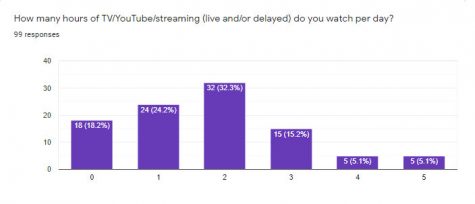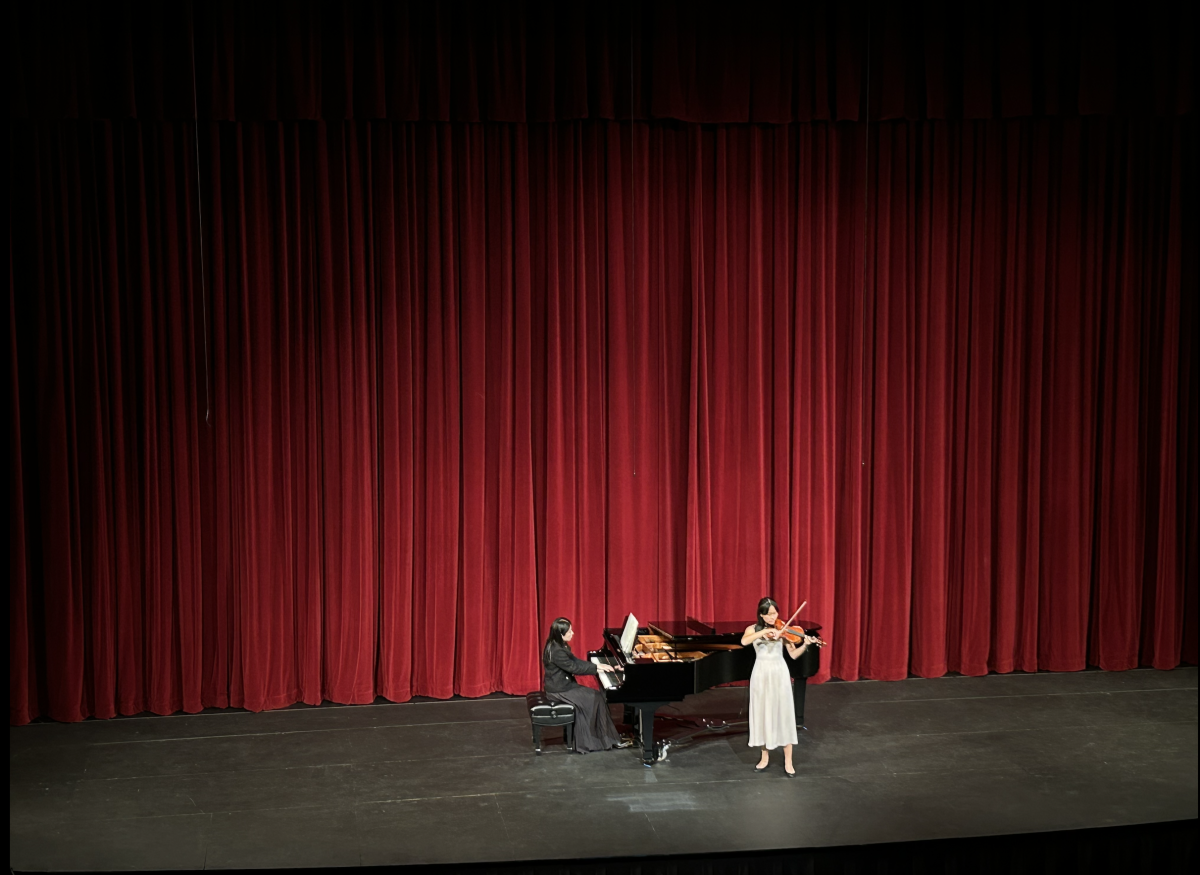
Television, one of the most influential inventions for its time, swept the 20th century off its feet and became a new form of entertainment and distraction for children. But what effect does television have on teens today?
According to When Did TV Watching Peak? in The Atlantic, “…television viewing didn’t peak until 2009-2010, when the average American household watched 8 hours and 55 minutes of TV per day.”
This statistic regarding households from the early 2000s poses an important question for us today. How much time do current students spend watching television and is television a form of procrastination or an escape from reality for students?
“The time I spend watching TV depends on the homework I have that day, but usually one to two hours, two hours max,” Georgia Grad ’25 said. “TV is not a form of procrastination for me. I usually just watch TV when I’m finished with my work.”
The results of a poll sent out to Harvard-Westlake middle school students show that out of the 96 responses, over 70% of those responses say that they watch between 1-3 hours of television a night, while very few students watch 4-5 hours of television a night.
Even with our advances in technology, children’s television habits have remained similar to children in the 20th century. With school work and extracurriculars, one must wonder how students can effectively balance their screen time and their work.
“Balance is key. I think it’s really important for us to take breaks when we need to recharge, but we shouldn’t be watching too much if we have really important things we need to do. A lot of people overlook the fact that not all YouTube/TV we watch is just for entertainment-I watch for educational purposes relating to schoolwork as well,” Sarah Parmet ’25 said.
An important fact to take into account when asking students how much time they spend watching television daily is that some of that time might be homework- or test-related. For example, many students might dedicate some of their time watching online sources.
“If all your work is done, and you have nothing to do, I think under two hours of screen time a day is alright,” Andrew Rindone ’27 said. “However, more may be damaging to your eyes, mind, etc.”
Even if students are able to create a balance between their work and extracurriculars and their screen time, there is a high possibility that television will be damaging in other ways.
Out of the 94 responses to the question of whether television was a form of procrastination or an escape from reality, 70.2 % of students answered that television is a form of procrastination, 58.5 % of students answered that television is an escape from reality, and 29.8 0% of students answered neither.
For many students, television as a reward for getting work done can be relaxing and an escape from reality, but for many students, watching television can be a form of procrastination and an excuse to put off work until the next episode is finished.





